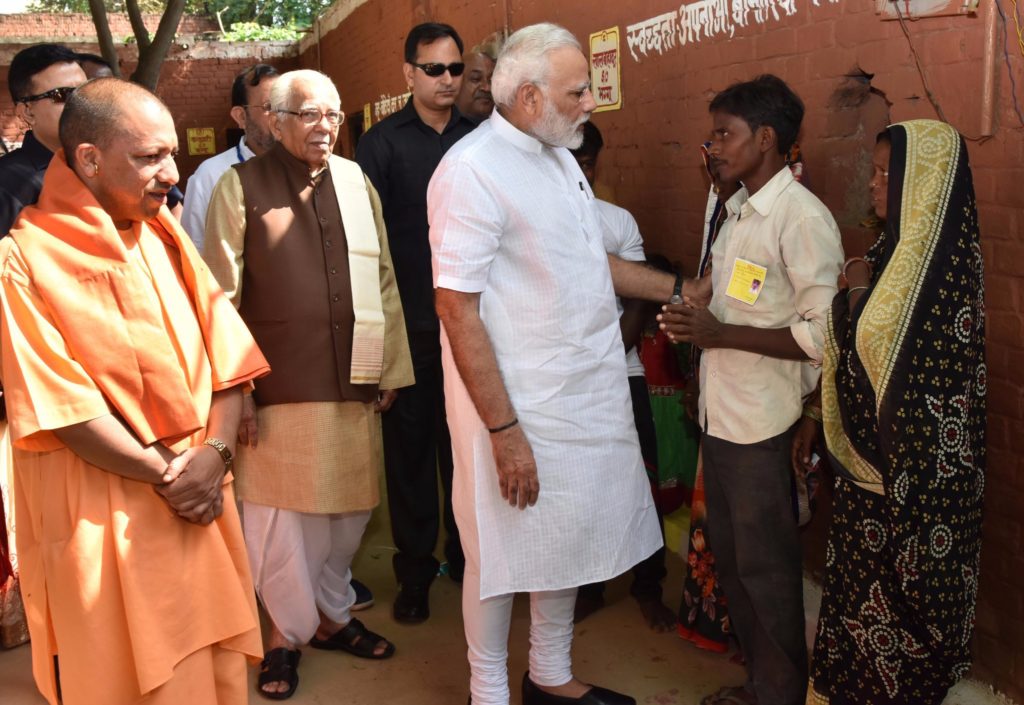Many of the problems and issues in India – witness the political debate and the controversies that are so rife on twitter and other social media – are to do with either the relationship between people and the state, or the fine balance between the competing rights of individuals and communities.
It may be a generalisation but I believe that at its core these disputes arise from a fundamental lack of clarity in our own minds of the status of the people.
Are we citizens or are we subjects?
Until 70 years ago there was no question – we were subjects of one king or imperial power or the other. Even if you go back to before recorded history we were subjects of a King who later came to be regarded as God. Kingdoms large and small were sometimes replaced with empires as conquests superseded earlier victories.
That changed dramatically with the ‘tryst with destiny’ in 1947 when almost overnight we became, in theory at any rate, citizens of a free sovereign nation. In 1950 we became a Republic when we gave ourselves a We-the-People type Constitution, thus setting in stone, so to speak, the role of the people as free citizens in determining the future.
But has this change of status from subject to citizen been reflected in how the State treats us; in how we treat and how we demand to be treated by the state; and how we respond to each other and react with the State? Do we feel ourselves to be empowered citizens or do we behave like loyal (or disloyal) subjects? Do those we elect to run our affairs treat us as free citizens to whom they are accountable, or as subjects who can be taken for granted?
Make up your own mind But consider the distinction I make between citizens and subjects.
Citizens have rights and freedoms. They have independence of thought, speech and choice; they have agency. Citizens elect their governments to run the affairs of State – their State. They implicitly consent to laws that their elected representatives frame for the greater good of all citizens. When citizens are deprived of their basic freedoms by the agencies of the State it is only by the fair and impartial rule of law, and only after due process. When the State uses its power unreasonably citizens protest and expect at the very least not to be ostracised for it.
Subjects, on the other hand, are people who have a duty, explicitly stated or otherwise, whether or not they agree, to serve the interests of the ruler. Such rights as they do enjoy are granted to them at the will and behest of the ruler, capable of being restricted or removed at will. The ruler frames laws mainly for his benefit and implements these laws arbitrarily and not always with due process. As a consequence subjects can have new obligations imposed on them and rights and freedoms abrogated at the whim of the ruler.
A nation of citizens has a truly representative government with transparency, accountability and the rule of law applying equally to both rulers and citizens. The institutions and agencies (that run the country according to the will of the people as expressed through an elected legislature) do so impartially because firstly, they follow a code that requires them to respect the citizens, and secondly, they are independent of the state.
It is possible in a country of nominally free citizens under an electoral democracy to end up with power going to a small group or ruling class that, whether benign or otherwise, acts mostly in its own interests with little accountability and little or no need for openness. It applies the law selectively, sparing its friends and cracking down on those who would question it. Indeed, the ruling class in a such a country with (de jure) citizens as (de facto) subjects uses the law as a tool for oppression rather than for ensuring a free society. Such a power elite needs necessarily to subvert democratic processes, control institutions, and suppress dissent in order to maintain its hold on power.
Apply these criteria to the myriad ways in which the State in India interacts with the people, either liberating them or constraining them, either facilitating personal and collective freedoms or restricting individual liberties and group rights. Think about these criteria in relation to how we as individuals and communities interact with each other. Do we support each others’ freedoms or do we we deliberately or inadvertently reinforce our role as loyal subjects?
As a Twitter correspondent of mine put it, its actually quite simple:
Subjects are granted some rights by a sovereign Ruler.
Citizens are sovereign and grant some (temporary) power to a selected ruler.
I believe there is a long way to travel – before we can say we are no longer subjects but free citizens.

